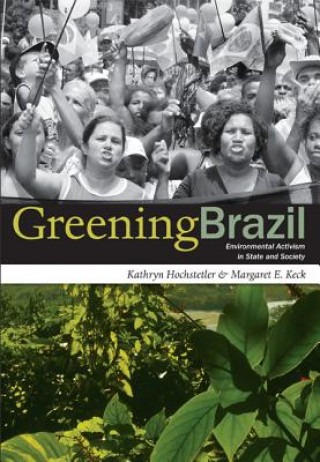
Doručenie
Nákupný poradca





Nehodí sa? Žiadny problém! U nás môžete do 30 dní vrátiť
 Darčekový poukaz
v ľubovoľnej hodnote
Darčekový poukaz
v ľubovoľnej hodnote
S darčekovým poukazom nešliapnete vedľa. Obdarovaný si za darčekový poukaz môže vybrať čokoľvek z našej ponuky.
Greening Brazil
 Angličtina
Angličtina
 81 b
81 b
30 dní na vrátenie tovaru
Mohlo by vás tiež zaujímať


"Greening Brazil" challenges the claim that environmentalism came to Brazil from abroad. Political scientists Kathryn Hochstetler and Margaret E. Keck retell the story of environmentalism in Brazil from the inside out, analyzing the extensive efforts within the country to save its natural environment and the interplay of those efforts with transnational environmentalism. They trace Brazil's complex environmental politics as they have unfolded over time, from their mid-twentieth-century conservationist beginnings to the contemporary development of a distinctive 'socio-environmentalism' which seeks to address ecological destruction and social injustice simultaneously. Hochstetler and Keck argue that explanations of Brazilian environmentalism - and environmentalism in the global South generally - must take into account the way that domestic political processes shape environmental reform efforts. The authors present a multilevel analysis encompassing institutions and individuals within the government - at national, state, and local levels - as well as the activists, special interest groups, and nongovernmental organizations that operate outside formal political processes. They emphasize the importance of networks linking committed actors within the government bureaucracy with activists in civil society. Portraying a gradual process punctuated by periods of rapid advance, the authors show how political opportunities have arisen from major political transformations, such as the transition to democracy, and from critical events, including the well-publicized murders of environmental activists in 1988 and 2004. Hochstetler and Keck contend that rather than instigating environmental policy changes within Brazil, foreign governments and organizations provide much needed leverage and support to domestic actors at key moments.
Informácie o knihe
 Angličtina
Angličtina
Kategórie




 Ako nakupovať
Ako nakupovať




























